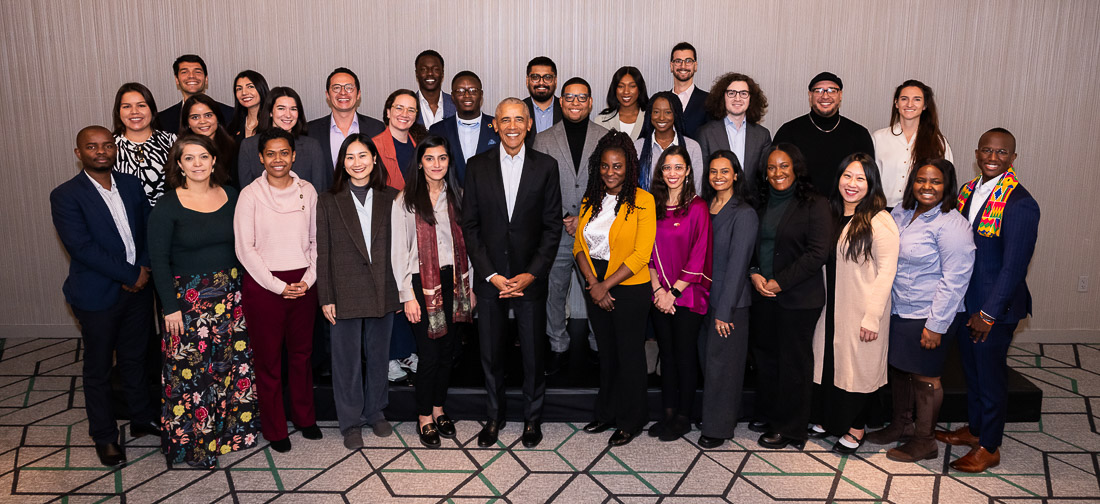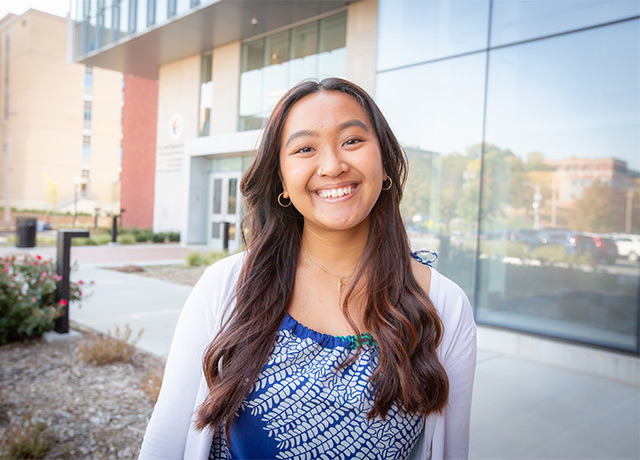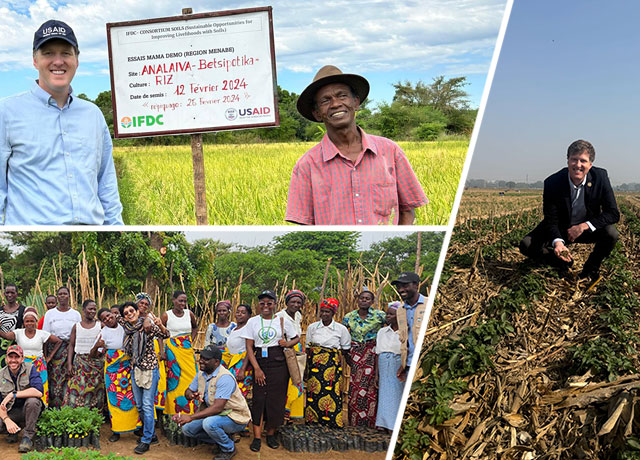Featured Testimonial About Creighton University
It affirmed the way I think about igniting social change, and it redefined the way I think about how philanthropy should be practiced.
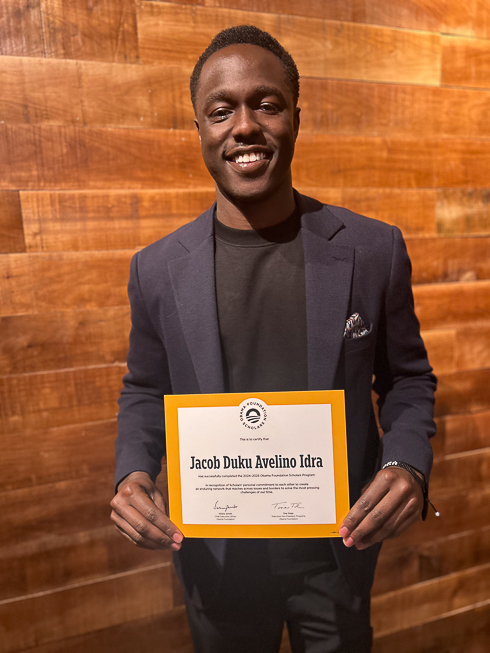
By all accounts, Creighton alumnus Jacob Idra, BSBA’22, is an energetic, passionate and committed young leader.
He’s bright (a former Creighton President’s Scholar). He’s a good communicator. He’s a relationship builder. And he has a vision that is both deeply personal and inspirational.
Idra fled South Sudan with his parents and siblings in 2003 when he was 4 years old. They eventually immigrated to the United States and settled in North Omaha.
While he acclimated to America and did well in school – earning a scholarship to Creighton – he maintained a strong connection to his South Sudanese heritage.
In 2018, his freshman year, Idra founded his own nonprofit, Republic of South Sudan (ROSS) Leaders, looking to improve the lives of other South Sudanese youth in Omaha.
Seven years later – with his nonprofit spreading to cities across the United States and even reaching his native South Sudan – Idra received a lift of his own. He was one of 12 emerging leaders worldwide – and, at 24 at the time, the youngest member – chosen for the 2024-2025 cohort of Obama Foundation Scholars.
The prestigious one-year academic program, which receives thousands of applications annually, includes a nine-month residency in New York City at Columbia University’s Columbia World Project.
The goal of the program is to help rising leaders from around the world who are already making a difference in their communities have the opportunity to take their work to the next level. Idra says the experience was motivational and impactful.
“I was able to build relationships with leaders from all around the world,” says Idra, now 25, who completed the program in May. “And they really challenged us to think bigger, to think more in-depth about the work that we do, beyond the services that we provide.
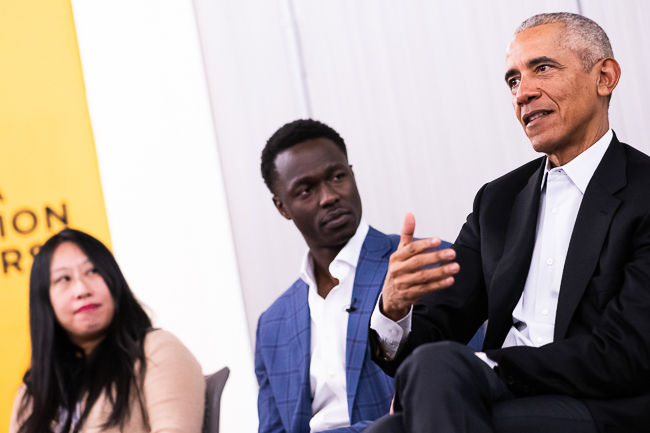
“It affirmed the way I think about igniting social change, and it redefined the way I think about how philanthropy should be practiced.”
Scholars in his cohort hailed from Fiji, Malaysia, Colombia, Italy, China, Kenya, Hungary, France, Brazil and Morocco, along with the United States.
“The program helped me to improve as a leader, to think more strategically, to think more long term,” says Idra, who majored in finance at Creighton and is now back living in North Omaha. “But then also to empower our current leaders and think about the sustainability of our organizations.”
Idra’s ROSS Leaders program is based in Omaha, but has a network of leaders in Lincoln, Nebraska; Des Moines, Iowa; Manchester, New Hampshire; Phoenix, Arizona; Greensboro, North Carolina; St. Cloud, Minnesota; Dallas, Texas; Juba, South Sudan; and Kampala and Bweyale, Uganda.
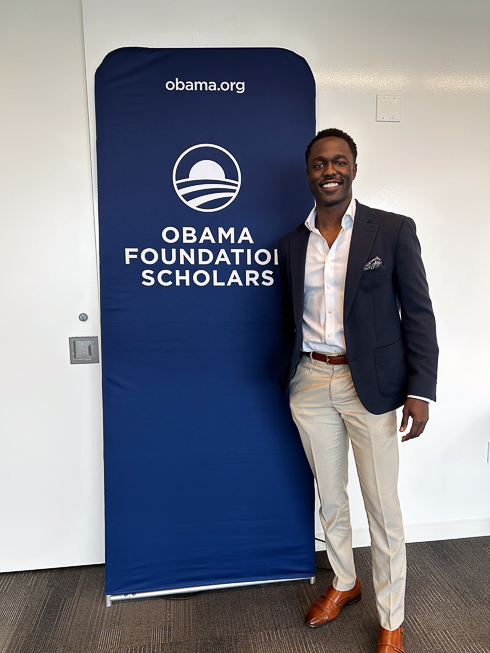
As executive director, Idra oversees a staff of about 20 people nationwide, including eight in Omaha. He travels back to South Sudan at least once a year to visit family and work with youth there, too. The program’s goal is to inspire youth by cultivating community through education, health and wellness, cultural engagement and career exploration.
Idra says Omaha has the largest South Sudanese population outside of South Sudan. Since Sudan earned its independence from British and Egyptian rule in 1956, religious and ethnic tensions, among other factors, have led to a series of civil wars that have left millions displaced or seeking refuge.
Idra’s family, like many who came to Omaha, fled during Sudan’s second civil war (1983-2005), before South Sudan became an independent nation in 2011.
“My generation is the bridge generation,” Idra says, between parents who were born and raised in Sudan and their children who were born in America. “The reason why the work that we’re doing is so important is that it’s not just a youth development program; it’s really to shape the identity of what it means to be South Sudanese for kids who are born in America.
“I want them to think about what it means to be a South Sudanese-American. How do I keep my culture and my heritage? And how do I advance my family, my current community and my community in South Sudan?”
